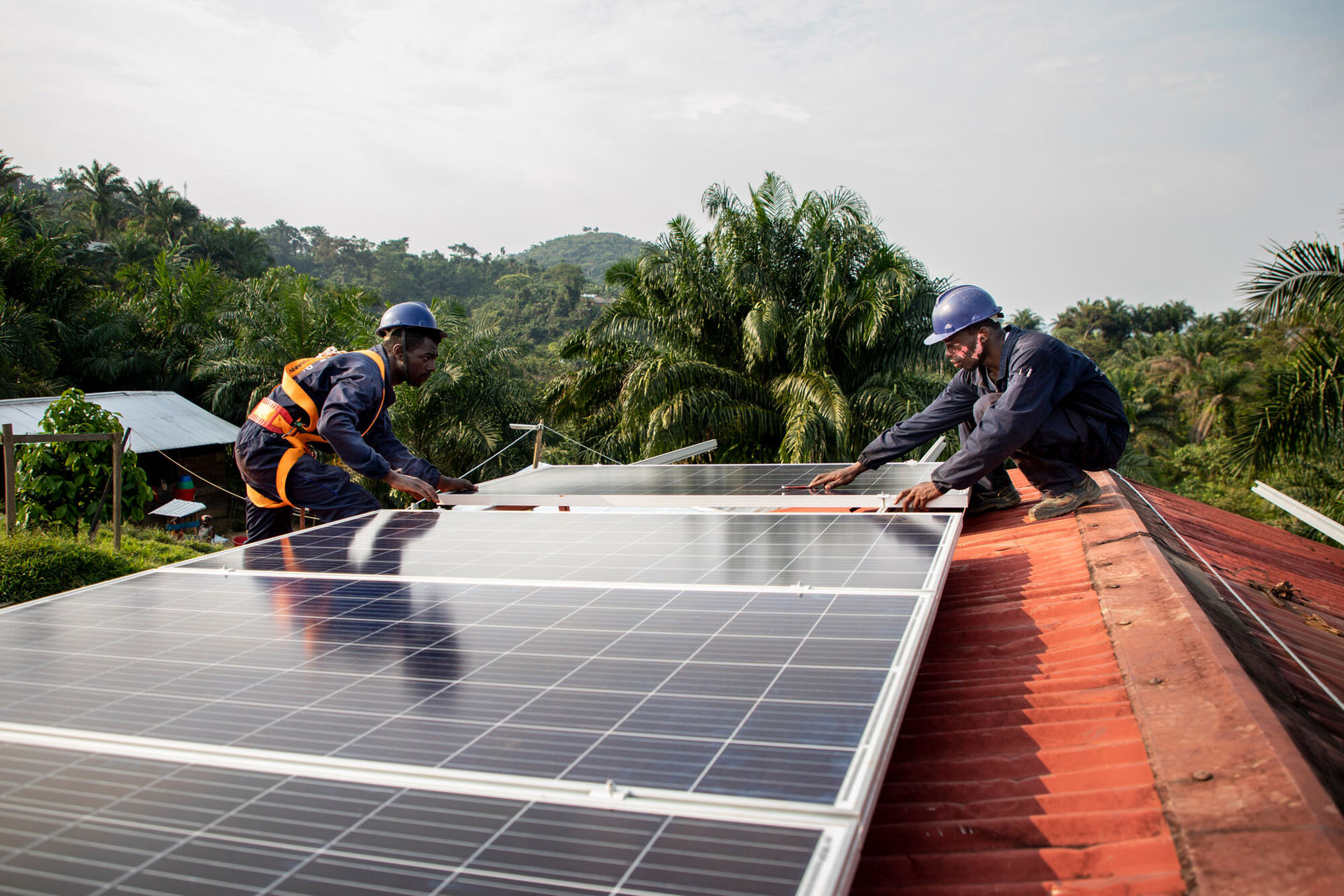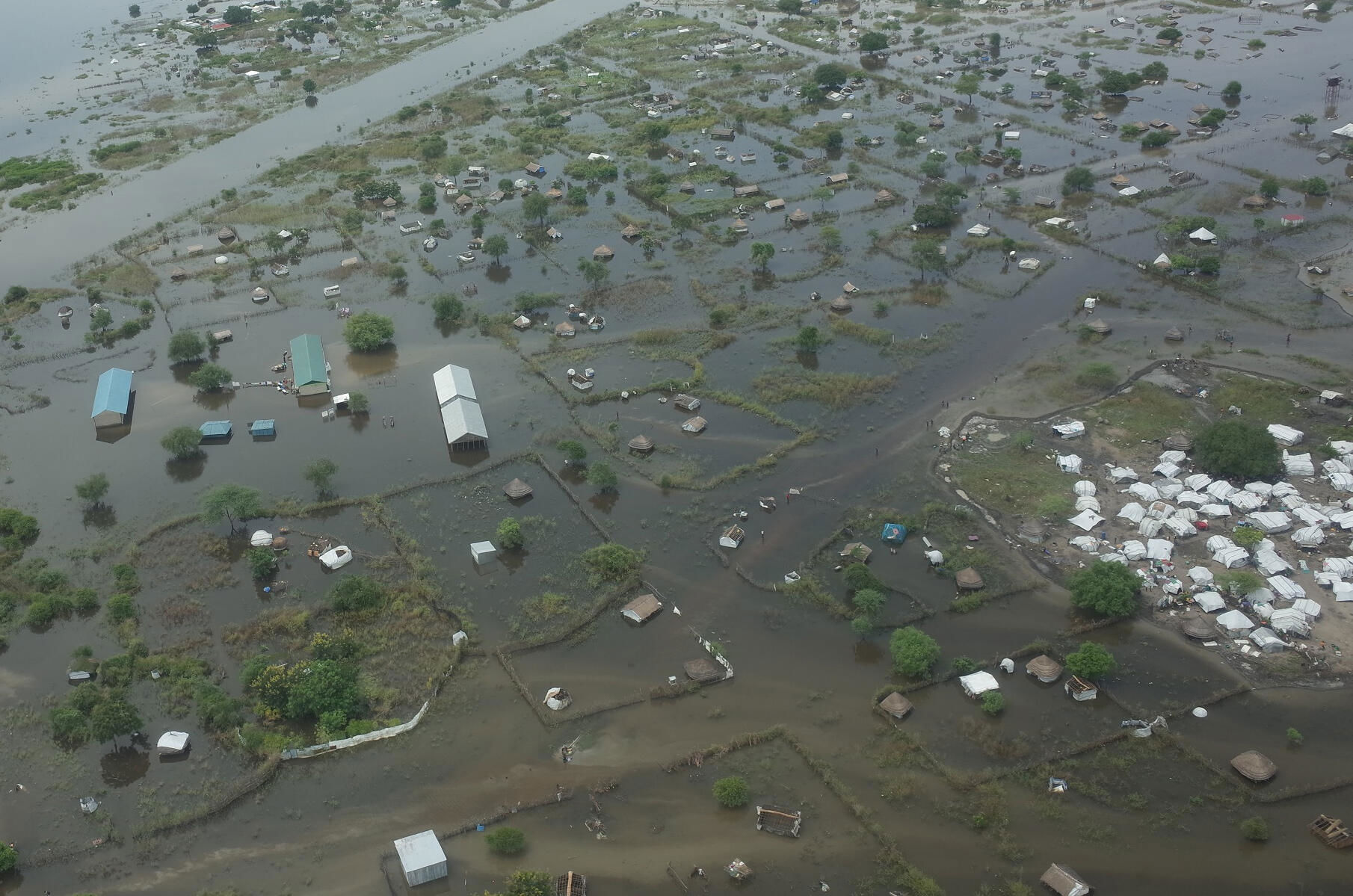Doctors Without Borders/ Médecins Sans Frontières (MSF) is paying close attention to the impact climate change will have on patients and our emergency humanitarian medical activities. We are already responding to many of the world's most drastic crises – conflicts, disasters, disease, displacement – and are witnessing the consequences and magnified impacts that climate change and environmental degradation can have on extremely vulnerable people.
In a new humanitarian brief for the 2021 Lancet Countdown on Health and Climate Change report, MSF medical humanitarians from around the world and across disciplines share their experiences with how climate change has likely exacerbated health and humanitarian crises. These experiences highlight our recorded observations of how environmental change and climate-induced disasters have contributed to the increased transmission of infectious diseases such as malaria, dengue and cholera; the impact of water scarcity and food insecurity in leading to malnutrition; the impacts of heat exposure leading to acute dehydration; the mental health impacts due to extreme weather events, and beyond.
"MSF teams are medical humanitarians, not climate scientists – but after years of witnessing how climate change has likely exacerbated health and humanitarian crises in multiple contexts where we work, we are compelled to speak out about what we see," said Carol Devine, Lead, Humanitarian Action on Climate & Environment for MSF.
The following are a few country snapshots from MSF's humanitarian brief in the 2021 Lancet Countdown report. To read the full brief, click here.
Climate change, instability and undernutrition in Somalia
Over two decades of conflict, political instability and extreme climatic conditions have led to one of the most protracted humanitarian crises in the world in Somalia. Intense and frequent floods, droughts and desert locust swarms have combined to disrupt food security and diminished livelihoods. This has increased competition for scarce resources, exacerbating existing tensions and affecting the most marginalized people.
The most significant impact of climate change manifests as undernutrition among children. If climate change continues as projected, MSF warns that diminished food production and reduced nutritional quality of some cereal crops can threaten to increase the risk of undernutrition, with infants often the worst affected.
In response, MSF runs a hunger gap programme in southern Somalia, which aims to prevent and address acute malnutrition during the lean season through active surveillance, screening, and ambulatory treatment. In Gedo and the Lower Juba regions, we initiated three emergency responses to treat children of severe acute malnutrition and addressing critical water shortages.
"More people are moving in search of food and water, even as the risk of COVID-19 remains and a measles outbreak continues unabated in Dhobley and Kismayu. Pastoralist communities are also affected as they have lost livestock that has reportedly died of thirst due to water shortages."
- Mohamed Ahmed, MSF's project coordinator in Jubaland.
Health system damage due to climate disaster in Honduras
In late 2020, when hurricanes Eta and Iota hit Central America in quick succession, more than 120 health centres in Honduras were damaged or destroyed – some simply disappearing into the mud. Two million people were left with limited or no access to care.
Yet even before the storms, the health system in Honduras had been under considerable strain. Hospitals struggled to accommodate COVID-19 patients, while a dengue outbreak driven by insecticide-resistant mosquitoes loomed as a result of poorly-implemented vector control efforts.
To address this, MSF has implemented measures to bolster health system resilience to climate-related threats in Honduras. These include vector control activities and a dengue fever surveillance system to pre-empt outbreaks, which place additional stress on the health system.
"We have slept in the fields. We have endured hunger and sleepless nights. At the Coatzacoalcos shelter, they told us that it was closed. I am afraid of staying on the street because anything can happen to us. I am afraid that my son will be taken from me. I don't sleep because while my son sleeps, I keep watch."
– Kimberly, a Honduran woman who lost her home and possessions in the hurricanes, while migrating through Mexico with relatives
Powering health care with solar energy in Balochistan, Pakistan
In four districts of Balochistan, Pakistan, MSF supports health facilities that provide care to more than 12,000 expectant mothers and approximately 10,000 children suffering from malnutrition each year. However, frequent power cuts and rising temperatures in the summertime make it difficult to maintain a cool temperature for patients, health workers and the preservation of medicines. This is a challenge given frequent power cuts and temperatures that can reach 50 degrees Celsius in the summertime.
To address this, MSF has installed solar panel systems at the facilities it supports in Dera Murad Jamali, Chaman and Kuchlak. Supplemented by grid or generator electricity, these systems provide uninterrupted power for lighting, air conditioning and fans, and water pumping and cooling, while averting more than 50,000 kg of carbon emissions per year.
"As medical practitioners, our job is not only to treat people, but to prevent future illness from occurring. We must not create problems for tomorrow while trying to solve the health problems of today."
– Dr. Monica Rull, MSF Medical Director



